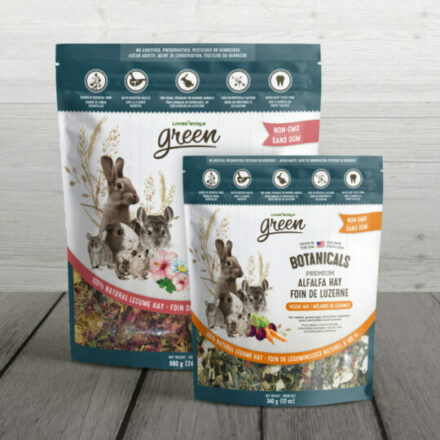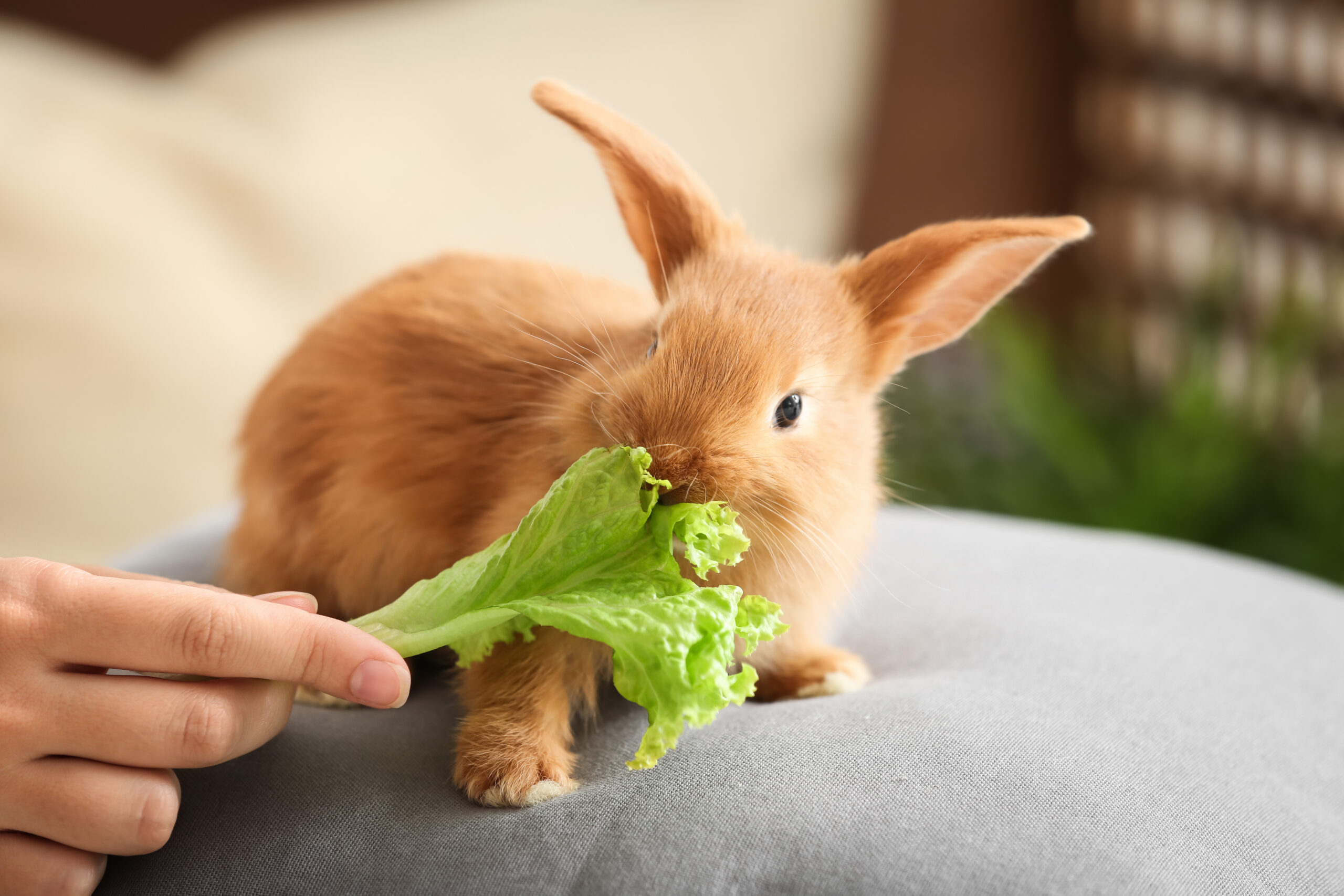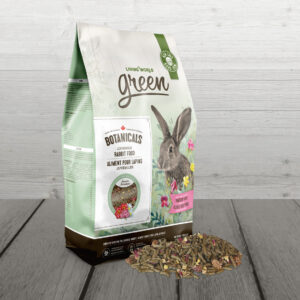Living World Green Botanicals Premium Alfalfa Hay contributes to the growth of healthy teeth and bones.


A baby rabbit spends the first few months of its life growing and eating – a lot. A balanced diet specifically for juvenile rabbits is essential to ensure they are receiving all the nutrients required to grow healthy and strong.
So, what exactly does a healthy, balanced diet consist of? Read on to learn about proper nutrition for baby rabbits.
Hay plays a very important role in a rabbit’s diet – it provides enrichment, encourages foraging behaviour and the high fibre content aids with digestion and helps keep a rabbit’s ever-growing teeth trim and healthy. But the nutritional requirements of baby bunnies differ from those of adult rabbits, and the type of hay offered can have an impact on their growth.
Until the age of about a year old, young rabbits should be fed Alfalfa hay – which is not actually a hay but rather a legume. High in calcium, it’s essential for the growth of strong bones and teeth.
Fragrant, sweet and yummy, Alfalfa hay is also rich in protein and calories, encouraging weight gain in young, growing bunnies and providing them with the essential nutrients needed to grow big and strong.
It should be noted that because Alfalfa hay is so rich in protein and calcium, it’s recommended mainly for young, growing rabbits and pregnant or nursing females. In the case of adult rabbits, it should only be offered in limited quantities as an occasional treat. That’s because, if given regularly, the adults will be ingesting an excessive amount of nutrients that their bodies cannot process, and they may also become obese, both of which may lead to health problems.
Living World Green Botanicals Premium Alfalfa Hay contributes to the growth of healthy teeth and bones.

Like hay, fresh foods play an important role in a bunny’s balanced and healthy nutrition. They offer dietary variety by adding different flavours and textures to the rabbit’s diet while providing foraging opportunities that help prevent boredom.
Enrichment foods can be introduced at about the age of three months – it’s best to introduce fresh food slowly, one at a time, so it’s easier to monitor how your pet’s digestive system responds to it.
Greens and vegetables are rich in vitamins, minerals and fibre, making them the perfect complement to hay. Leafy greens such as Romaine and Boston lettuce should make up a large percentage of the fresh foods offered. Other greens and vegetables that are safe for rabbits to eat include:
Fresh fruits and vegetables (such as carrots) that are high in sugar should be offered in very limited quantities and are considered treats. Healthy fruits that are safe for rabbits include:
Supplementing a baby bunny’s diet with a small amount of good quality commercial pellets is a great way to ensure they get all the nutrients needed for healthy growth.
Selecting the best pellets for baby rabbits allows them to have a healthy start in life and reduces the risk of premature health issues. Look for foods that are specifically formulated for young or juvenile rabbits, which should be alfalfa-based and fortified with vitamins and minerals, with high levels of protein and calories.
Don’t feed cereal mixes which, although tasty, are full of ingredients with no nutritional value. Cereal mixes encourage selective eating, as your bunny picks through the ingredients, choosing to eat the fun but sweet, starchy and less healthy ingredients such as seeds and nuts at the expense of the healthy ingredients.
An extruded food such as Living World Green Botanicals Juvenile Rabbit Food combines all the nutritious, wholesome ingredients required for optimal health in one convenient pellet. This prevents selective eating, ensuring your bunny consumes a balanced diet and receives all the necessary nutrients for growth, while minimizing waste at the same time.

Fresh, clean drinking water is the foundation of a pet rabbit’s healthy diet and should be available around the clock. As baby bunnies grow and start consuming drier foods such as hay and commercial pellets, their need for water increases. Water keeps your pet hydrated, its digestive system working properly and helps prevent gastrointestinal and urinary illnesses.
With Living World Green products specially tailored for young and growing rabbits you can be confident that your pet is getting a healthy head start.